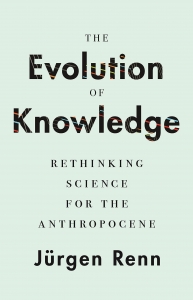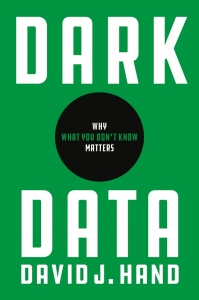The Evolution of Knowledge and Rethinking Science for The Anthropocene with Professor Jürgen Renn
Most history of science publications narrowly focus on specific periods in human history, or particular disciplines of scientific discovery, or small sets of scientists and philosophers. However there is a view that history of science can be better understood against the background of a history of knowledge including not only theoretical but also intuitive and practical knowledge. This can be further broadened by including cognitive, material and social dimensions of knowledge. Studying how knowledge structures are formed and evolve as knowledge spreads should further enrich our understanding of development and progress of science and technology. In his new book “ The Evolution of Knowledge: Rethinking Science for the Anthropocene” Jürgen Renn presents a new way of thinking about the history of science and technology, one that offers a grand narrative of human history in which knowledge serves as a critical factor of cultural evolution.
Jürgen Renn is a director at the Max Planck Institute for the History of Science in Berlin, where, together with his group, he researches structural changes in systems of knowledge. Jürgen Renn is honorary professor for History of Science at both the Humboldt-Universität and the Freie Universität Berlin. He is currently serving as Chairperson of the Humanities Sciences Section of the Max Planck Society.
In this book Jürgen Renn examines the role of knowledge in global transformations going back to the dawn of civilization while providing vital perspectives on the complex challenges confronting us today in the Anthropocene—this new geological epoch shaped by humankind. He reframes the history of science and technology within a much broader history of knowledge, analyzing key episodes such as the evolution of writing, the emergence of science in the ancient world, the Scientific Revolution of early modernity, the globalization of knowledge, industrialization, and the profound transformations wrought by modern science. He investigates the evolution of knowledge using an array of disciplines and methods, from cognitive science and experimental psychology to earth science and evolutionary biology. The result is an entirely new framework for understanding structural changes in systems of knowledge—and a bold new approach to the history and philosophy of science.
In this episode of Bridging the Gaps, I speak with professor Jürgen Renn, one of today’s preeminent historians of science. We discuss fascinating research that he presents in The Evolution of Knowledge. We discuss the origin, evolution and spread of knowledge, and other insights that Jürgen Renn discusses in this thorough book.
Complement this interesting discussion with fascinating conversation “Origin of Mathematics and Mathematical Thinking with Dr Keith Devlin” and then listen to “Robots, Artificial Life and Technology Imagined by the Ancients” with Adrienne Mayer.



Connect With Us